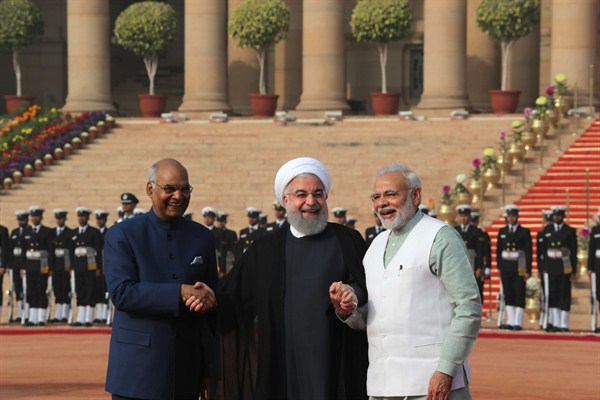On Feb. 17, during a meeting in New Delhi, Iranian President Hassan Rouhani and Indian Prime Minister Narendra Modi signed nine new bilateral agreements, including an 18-month lease of part of the Iranian port of Chabahar, near the Pakistan border, to India for an $85 million development project. Modi said the port deal would help expand “the centuries-old bilateral relationship.” In an email interview, Arshin Adib-Moghaddam, professor in Global Thought and Comparative Philosophies at the School of Oriental and African Studies in London and the recent author of “Psycho-nationalism: Global Thought, Iranian Imaginations,” explains the significance of the port deal, other areas of collaboration, and whether the United States could be a spoiler.
WPR: What is the importance of the Chabahar port deal for both Iran and India?
Arshin Adib-Moghaddam: The port at Chabahar is of immense geostrategic importance for both countries, and the lease agreement is yet another indicator of the deepening relations between Iran and India. As I wrote in my recent book, Iran and India have close cultural links spanning centuries that have repeatedly been translated into economic cooperation and diplomatic achievement. The port deal emerges as a practical outcome of this sound relationship. For Iran, it is an essential step toward strengthening the “eastern pivot” in the country’s foreign policy, which it has pursued as a strategic preference since the revolution of 1979, when Iran re-oriented its foreign policy toward Asia. Chabahar is Iran’s southernmost city, positioned outside the volatile Persian Gulf, which gives Iran direct access to the Gulf of Oman and, from there, to the Arabian Sea. It is also one of the most socio-economically deprived areas of Iran, and the port deal is likely to generate more foreign direct investment.

